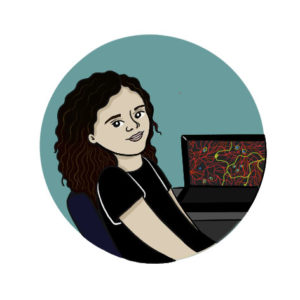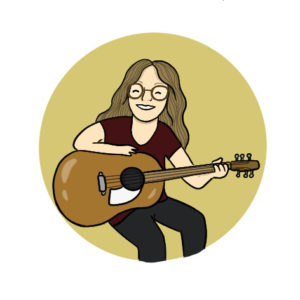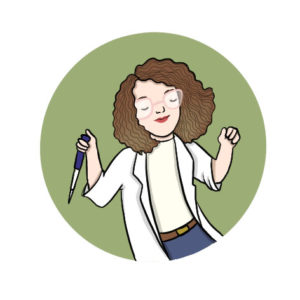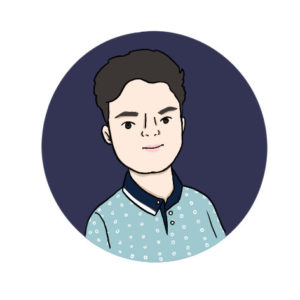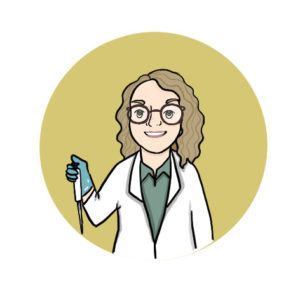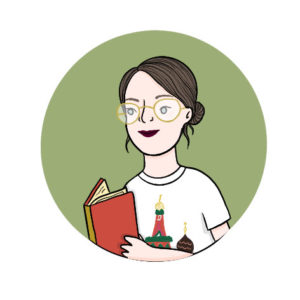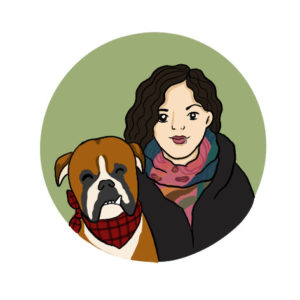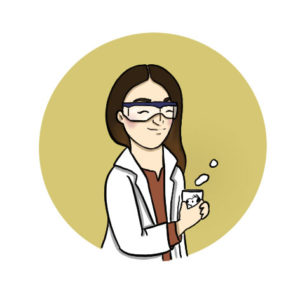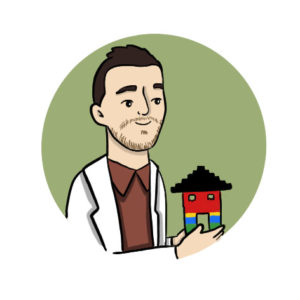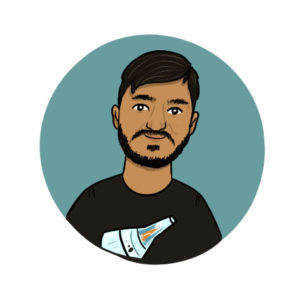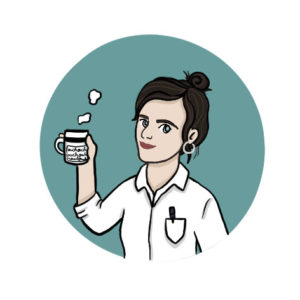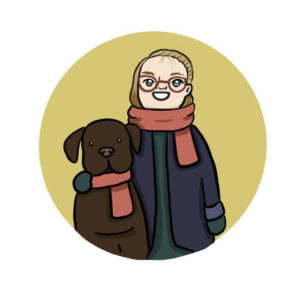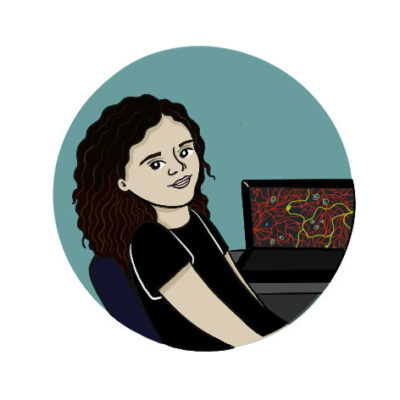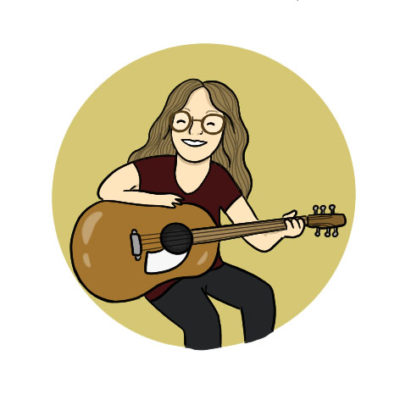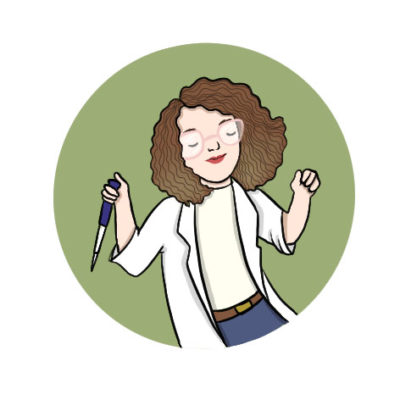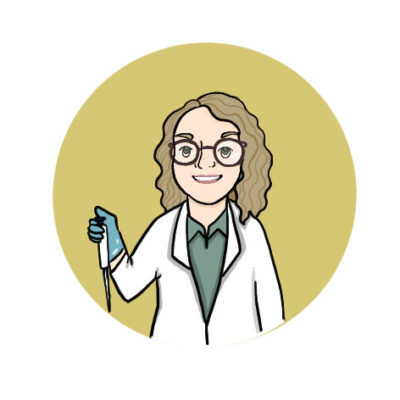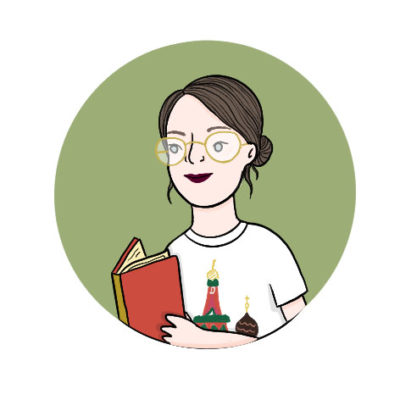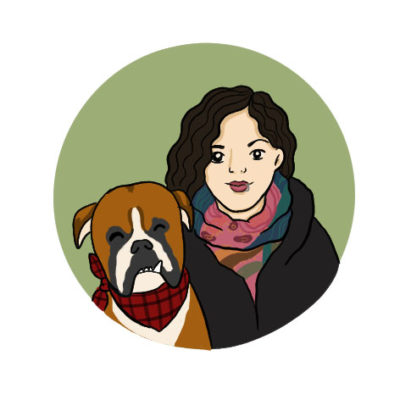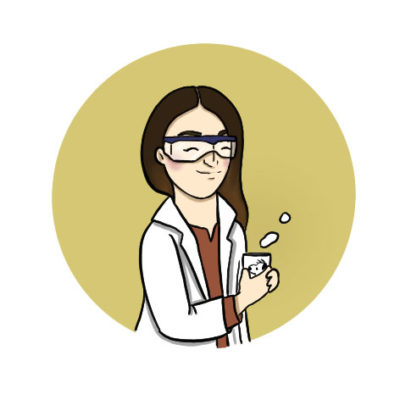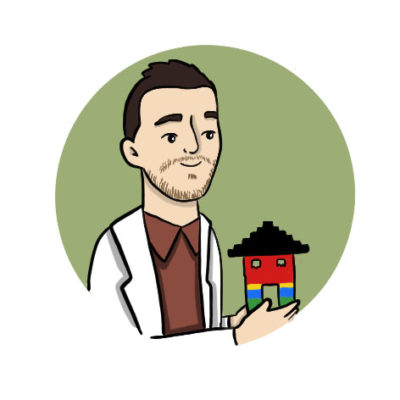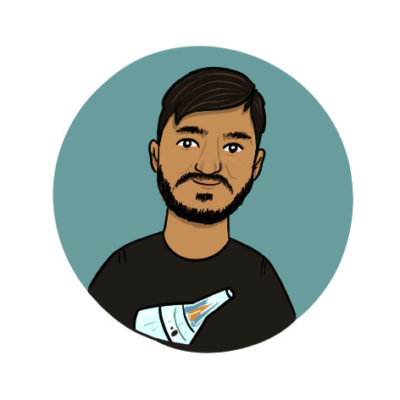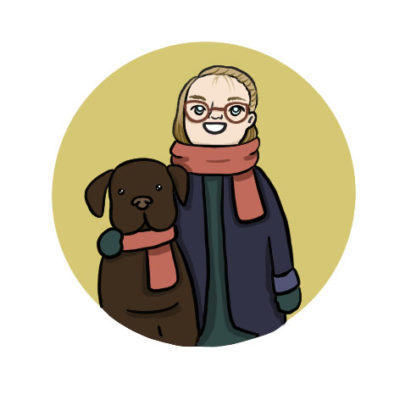Personnes
SHUBHRA ACHARYA
« I am currently working towards delineating the role of long noncoding RNAs in Parkinson’s disease (PD). The project aims to find a novel biomarker that will help in better diagnosis and treatment of PD. »
Research Focus
Parkinson’s disease
Affiliation
CardioVascular Research Unit, Department of Population Health
Luxembourg Institute of Health (LIH)
Contributions to LUX:plorations:
Microglia: Guardians of the Brain?
Why did you participate in LUX:plorations?
« Communication is very important aspect of research, especially in terms of educating young developing minds. LUX:plorations was a very good initiative to learn how to communicate our research findings, not only to students but also to people that are from different backgrounds. »
What did you like most about LUX:plorations?
« The lectures with assignments and group work even at the time of pandemic was very well done. I also learnt about different research projects, other than my research field, currently ongoing in Luxembourg. »
PRASAD ADHAV
Prasad Adhav is focusing his research on simulations of fluid
mechanics at the Department of Engineering (DoE) of the Uni.lu.
Research Focus
Computational Fluid Mechanics (Simulations)
Affiliation
Luxembourg XDEM Research Centre, Department of Engineering (DoE)
University of Luxembourg
Contributions to LUX:plorations:
Chronicles from Platform 6
PRASAD ADHAV
Prasad Adhav is focusing his research on simulations of fluid
mechanics at the Department of Engineering (DoE) of the Uni.lu.
Research Focus
Computational Fluid Mechanics (Simulations)
Affiliation
Luxembourg XDEM Research Centre, Department of Engineering (DoE)
University of Luxembourg
Contributions to LUX:plorations:
Chronicles from Platform 6
LYNN BONETTI
« I carry out my research in the field of immunology at the Luxembourg Institute of Health. Our group focusses on the pathways that regulate our immune response and tries to identify possible targets for immunotherapy. The principle of immunotherapy is to manipulate the immune system (our own defense system) in order to fight diseases. On one hand, we can boost the immune system and make it stronger to fight cancer or infections. On the other hand, we can dampen it and make it weaker in case of autoimmune diseases. In my research, I focus on antioxidant molecules and how they regulate the immune response against gastrointestinal diseases. »
Research Focus
Immunology
Affiliation
Experimental and Molecular Immunology Group (joint research group with LIH and LCSB), Department of Infection and Immunity
Luxembourg Institute of Health (LIH)
Contributions to LUX:plorations:
Microglia: Guardians of the Brain?
Why did you participate in LUX:plorations?
« I was eager to participate in this project, because it combines two of my greatest passions: science and writing stories. Additionally, I also see popularizing science as a very important task. Sharing scientific knowledge in a comprehensive way allows us to communicate the importance of science and make people more aware of what is going on in our laboratories. Finally, it also feels great to pass on my passion to other people (maybe even possible future scientists). »
What did you like most about LUX:plorations?
« Creating our own characters and giving them a story was my favorite aspect in this project. It was fascinating to participate in the whole process of creating a comic and to see how our story and characters evolved throughout it all. »
What was the biggest challenge for you?
« The biggest challenge of this project was to adapt the scientific input and make it understandable to a non-scientific audience. Additionally, it was quite challenging to condense the story and fit it on 2 pages. »
ELEFTHERIA CHARALAMBOUS
« My research focuses on how facing adversity during the first 1000 days of life shapes the microbiome, epigenome and immune system. I am specifically looking for changes detectable in adulthood. »
Research Focus
Immunology, Microbiome, Epigenetis, Integrative Biology
Affiliation
Immune Endocrine and Epigenetics, Department of Infection and Immunity
Luxembourg Institute of Health (LIH)
Contributions to LUX:plorations:
Becoming an Agent of Change
Why did you participate in LUX:plorations?
« I find science communication a very important skill. During my PhD journey, I wanted to experience how to communicate an important and complicated matter in an efficient and creative way. »
What did you like most about LUX:plorations?
« I loved the creativity of the team and the interdisciplinary discussions we had during the process. »
What was the biggest challenge for you?
« Biggest challenge for me was to unleash my creativity in order to communicate my thoughts. »
ELEFTHERIA CHARALAMBOUS
« My research focuses on how facing adversity during the first 1000 days of life shapes the microbiome, epigenome and immune system. I am specifically looking for changes detectable in adulthood. »
Research Focus
Immunology, Microbiome, Epigenetis, Integrative Biology
Affiliation
Immune Endocrine and Epigenetics, Department of Infection and Immunity
Luxembourg Institute of Health (LIH)
Contributions to LUX:plorations:
Becoming an Agent of Change
Why did you participate in LUX:plorations?
« I find science communication a very important skill. During my PhD journey, I wanted to experience how to communicate an important and complicated matter in an efficient and creative way. »
What did you like most about LUX:plorations?
« I loved the creativity of the team and the interdisciplinary discussions we had during the process. »
What was the biggest challenge for you?
« Biggest challenge for me was to unleash my creativity in order to communicate my thoughts. »
MARIE-ALIX DALLE
« As water demand grows while the resources are depleting, desalinating water becomes an attractive solution. Because current technologies require a lot of energy, we are focusing on improving a low-tech low-grade heat based process: membrane distillation. By optimizing process parameters, we hope to increase the yield of this desalinating method. »
Research Focus
Evaporation
Affiliation
Research Unit in Engineering Sciences (RUES), Department of Engineering (DoE)
University of Luxembourg
Contributions to LUX:plorations:
The Adventures of Tuwwo the Water Molecule
Why did you participate in LUX:plorations?
« My feeling is that science is cruelly missing in the press as well as in citizen debates. As a science passionate, I am trying to share my enthusiasm by all means. For me, these comics seem to be a perfect way to engage the public on scientific topics in an entertaining way. »
What did you like most about LUX:plorations?
« I loved the creative process of LUX:plorations. »
What was the biggest challenge for you?
« The biggest challenge to me was to choose what concepts to share clearly in only two pages! »
CATHERINE DELBROUCK
« Cancer cells rapidly reproduce and invade tissues by rewiring the cellular metabolism. Cellular metabolism is a sum of chemical changes that take place in a cell through which a nutrient is converted to smaller components. These so-called metabolites are provided for essential processes, including energy and building blocks synthesis. One important metabolic pathway that is often hijacked by cancer cells is the one-carbon cycle. A broader comprehension of this important metabolic pathway and its by-products, could be exploited for therapeutic application against invasive cancer types. »
Research Focus
Cancer Metabolism
Affiliation
Cancer Metabolism Group, Department of Oncology
Luxembourg Institute of Health (LIH)
Contributions to LUX:plorations:
A Gut Feeling
Why did you participate in LUX:plorations?
« In my opinion, we need to fundamentally reimagine how we communicate science to the broad public. LUX:plorations allows to make science truly accessible to a young and dynamic public. »
What did you like most about LUX:plorations?
« It was a new experience to transform current Luxembourgish research into a science comic. Our working group enjoyed picturing the “Microbiome World” and its inhabitants. »
What was the biggest challenge for you?
« It was tough to come up with a scientifically correct comic but still entertaining. »
CATHERINE DELBROUCK
« Cancer cells rapidly reproduce and invade tissues by rewiring the cellular metabolism. Cellular metabolism is a sum of chemical changes that take place in a cell through which a nutrient is converted to smaller components. These so-called metabolites are provided for essential processes, including energy and building blocks synthesis. One important metabolic pathway that is often hijacked by cancer cells is the one-carbon cycle. A broader comprehension of this important metabolic pathway and its by-products, could be exploited for therapeutic application against invasive cancer types. »
Research Focus
Cancer Metabolism
Affiliation
Cancer Metabolism Group, Department of Oncology
Luxembourg Institute of Health (LIH)
Contributions to LUX:plorations:
A Gut Feeling
Why did you participate in LUX:plorations?
« In my opinion, we need to fundamentally reimagine how we communicate science to the broad public. LUX:plorations allows to make science truly accessible to a young and dynamic public. »
What did you like most about LUX:plorations?
« It was a new experience to transform current Luxembourgish research into a science comic. Our working group enjoyed picturing the “Microbiome World” and its inhabitants. »
What was the biggest challenge for you?
« It was tough to come up with a scientifically correct comic but still entertaining. »
NHAT MINH DOAN
Nhat Minh Doan from the Department of Mathematics (DMATH) at the
Uni.lu is investigating curves on surfaces and their moduli spaces.
Research Focus
Geometric Topology
Affiliation
Department of Mathematics (DMATH)
University of Luxembourg
Contributions to LUX:plorations:
Math, Magic and Maryam
LUCE DROUET
« I investigate travellers’ experience with the Luxembourgish train service. »
Research Focus
User Experience Research applied to railway sector
Affiliation
Human Computer Interaction (HCI) Research Group,
Institute of Cognitive Science and Assessmen (COSA)
University of Luxembourg
Contributions to LUX:plorations:
Chronicles from Platform 6
Why did you participate in LUX:plorations?
« I wanted to find a way to communicate my research topic in a simple and playful way. And I thought that the science comic support could be a wonderful tool for that. »
What did you like most about LUX:plorations?
« The result of all these months spent to work on it! All the science comics we designed look really professional and artistic from my perspective. »
What was the biggest challenge for you?
« Simplifying my research field to facilitate the understanding but without losing the scientific aim of my approach. »
LUCE DROUET
« I investigate travellers’ experience with the Luxembourgish train service. »
Research Focus
User Experience Research applied to railway sector
Affiliation
Human Computer Interaction (HCI) Research Group,
Institute of Cognitive Science and Assessmen (COSA)
University of Luxembourg
Contributions to LUX:plorations:
Chronicles from Platform 6
Why did you participate in LUX:plorations?
« I wanted to find a way to communicate my research topic in a simple and playful way. And I thought that the science comic support could be a wonderful tool for that. »
What did you like most about LUX:plorations?
« The result of all these months spent to work on it! All the science comics we designed look really professional and artistic from my perspective. »
What was the biggest challenge for you?
« Simplifying my research field to facilitate the understanding but without losing the scientific aim of my approach. »
ANOUK EWEN
« I am investigating the role of post-translational modifications in the innate immune system. »
Research Focus
Innate Immunity
Affiliation
Experimental and Molecular Immunology Group, Department of Infection and Immunity
Luxembourg Institute of Health (LIH)
Contributions to LUX:plorations:
Microglia: Guardians of the Brain?
Why did you participate in LUX:plorations?
« I wanted to reach out to the public and communicate my research. Especially now, during the current sanitary crisis, we could observe how important it is to communicate science. And in my opinion, there’s no better way to this than doing it while being creative! »
What did you like most about LUX:plorations?
« I really enjoyed working in an amazing team! It was nice to work together with Luxembourgish comic artists and to combine art/creativity with science. »
What was the biggest challenge for you?
« It was a challenge to explain our topic in a few words only, but still in a comprehensible way. »
SONJA FIXEMER
« I investigate the diversity (in shape and function) of immune cells, called microglia, in post-mortem brain tissue from Alzheimer’s Disease patients. The aim is to identify potentially toxic subgroups which could offer new targets for therapy development. »
Research Focus
Alzheimer’s Disease
Affiliation
Prof. Dr. Alexander Skupin Lab (Integrative Cell Signaling) and Prof. Dr. Michel Mittelbronn Lab (Luxembourg Centre for Neuropathology), Luxembourg Centre for Systems Biomedicine (LCSB)
University of Luxembourg
Contributions to LUX:plorations:
Microglia: Guardians of the Brain?
Why did you participate in LUX:plorations?
« I was so impressed by the first edition of this comic series from last year, which motivated me to show the public that here in Luxembourg we also do research on Alzheimer’s disease and that immune cells which are called microglia might play an important role! »
What did you like most about LUX:plorations?
« LUX:plorations is such a creative way to show complicated research topics to a broad and young audience and I think as researchers we should always make our findings also accessible for non-specialists and try to spark interest in research in the next generation! »
What was the biggest challenge for you?
« The biggest challenge for me in this project was definitely to limit the amount of information we could include in the comic in order to keep it interesting and simple. You want to tell the people everything about your research, but for this we would have needed to create an entire comic book! »
SONJA FIXEMER
« I investigate the diversity (in shape and function) of immune cells, called microglia, in post-mortem brain tissue from Alzheimer’s Disease patients. The aim is to identify potentially toxic subgroups which could offer new targets for therapy development. »
Research Focus
Alzheimer’s Disease
Affiliation
Prof. Dr. Alexander Skupin Lab (Integrative Cell Signaling) and Prof. Dr. Michel Mittelbronn Lab (Luxembourg Centre for Neuropathology), Luxembourg Centre for Systems Biomedicine (LCSB)
University of Luxembourg
Contributions to LUX:plorations:
Microglia: Guardians of the Brain?
Why did you participate in LUX:plorations?
« I was so impressed by the first edition of this comic series from last year, which motivated me to show the public that here in Luxembourg we also do research on Alzheimer’s disease and that immune cells which are called microglia might play an important role! »
What did you like most about LUX:plorations?
« LUX:plorations is such a creative way to show complicated research topics to a broad and young audience and I think as researchers we should always make our findings also accessible for non-specialists and try to spark interest in research in the next generation! »
What was the biggest challenge for you?
« The biggest challenge for me in this project was definitely to limit the amount of information we could include in the comic in order to keep it interesting and simple. You want to tell the people everything about your research, but for this we would have needed to create an entire comic book! »
POORANI GNANASAMBANDAN
« I develop transparent materials that are highly conducting to serve as top electrical contact (electrode) for solar cells. »
Research Focus
Transparent contacts
Affiliation
Transparent and Optically Tuneable Materials and Nanostructures, Materials Research and Technology (MRT) Department
Luxembourg Institute of Science and Technology (LIST)
Contributions to LUX:plorations:
Math, Magic and Maryam
Why did you participate in LUX:plorations?
« Because pictures and comics are a great and fun way to visualize complex scientific concepts. »
What did you like most about LUX:plorations?
« The opportunity to work with researchers from other fields and collaborating with them. »
What was the biggest challenge for you?
« Collaborating remotely and explaining difficult concepts and abstract science in a relatable way. »
ADRIANA COPPOLA
Adriana Coppola works at the Department of Engineering (DoE)
of the University of Luxembourg (Uni.lu) on energy efficiency.
Research Focus
Energy Efficiency
Affiliation
Department of Engineering (DoE)
University of Luxembourg
Contributions to LUX:plorations:
Becoming an Agent of Change
ADRIANA COPPOLA
Adriana Coppola works at the Department of Engineering (DoE)
of the University of Luxembourg (Uni.lu) on energy efficiency.
Research Focus
Energy Efficiency
Affiliation
Department of Engineering (DoE)
University of Luxembourg
Contributions to LUX:plorations:
Becoming an Agent of Change
KAMELIA JAMAATI
Kamelia Jamaati is a computer engineer and psychologist from the
Luxembourg Centre for Educational Testing (LUCET) of the University
of Luxembourg. She is analysing patterns in educational data in order
to predict special needs of children with, for instance, ADHD or dyslexia.
Research Focus
Educational Data Mining
Affiliation
Luxembourg Centre for Educational Testing (LUCET)
University of Luxembourg
Contributions to LUX:plorations:
Math, Magic and Maryam
BENTE JANSSEN-WEETS
Bente Janssen-Weets is a doctoral candidate at the Luxembourg Institute of Health (LIH) in the Department of Infection and Immunity. Bente is focusing her research on respiratory allergies in the research group Molecular and Translational Allergology.
Research Focus
Allergies
Affiliation
Molecular and Translational Allergology group, Department of Infection and Immunity,
Luxembourg Institute of Health (LIH)
Contributions to LUX:plorations:
A Furry Tale
BENTE JANSSEN-WEETS
Bente Janssen-Weets is a doctoral candidate at the Luxembourg Institute of Health (LIH) in the Department of Infection and Immunity. Bente is focusing her research on respiratory allergies in the research group Molecular and Translational Allergology.
Research Focus
Allergies
Affiliation
Molecular and Translational Allergology group, Department of Infection and Immunity,
Luxembourg Institute of Health (LIH)
Contributions to LUX:plorations:
A Furry Tale
JOHANNA JASCHIK
Johanna Jaschik works at the Luxembourg Centre for Contemporary and Digital History (C2DH) of the Uni.lu, focusing on border and migration studies of Eastern Europe.
Research Focus
Border studies
Affiliation
Luxembourg Centre for Contemporary and Digital History (C2DH)
University of Luxembourg
Contributions to LUX:plorations:
Becoming an Agent of Change
CHRYSOVALANTOU KALAITZIDOU
« We know that not only the intrinsic genetic programme of a cell, but also external influences coming from their surrounding environment affect their behavior. This environment comprise the Extracellular Matrix (ECM). Cells deform the ECM by applying forces to it in order to drive a number of their functions…even to communicate with other cells! My work is to understand how these forces alter the Extracellular Matrix and in order to do so, I combine computational mechanics with data-driven models. »
Research Focus
Data driven modeling
Affiliation
Data-Driven Computational Modelling and Applications (DRIVEN), Department of Engineering (DoE)
University of Luxembourg
Contributions to LUX:plorations:
Becoming an Agent of Change
Why did you participate in LUX:plorations?
« It was a great opportunity to interact with other researchers over topics that matter to us and find an artistic way to present them to the public. »
What did you like most about LUX:plorations?
« Scientist’s interaction. One can learn a lot when they are open to new paths and ideas. »
What was the biggest challenge for you?
« Putting great ideas in short sentences! »
CHRYSOVALANTOU KALAITZIDOU
« We know that not only the intrinsic genetic programme of a cell, but also external influences coming from their surrounding environment affect their behavior. This environment comprise the Extracellular Matrix (ECM). Cells deform the ECM by applying forces to it in order to drive a number of their functions…even to communicate with other cells! My work is to understand how these forces alter the Extracellular Matrix and in order to do so, I combine computational mechanics with data-driven models. »
Research Focus
Data driven modeling
Affiliation
Data-Driven Computational Modelling and Applications (DRIVEN), Department of Engineering (DoE)
University of Luxembourg
Contributions to LUX:plorations:
Becoming an Agent of Change
Why did you participate in LUX:plorations?
« It was a great opportunity to interact with other researchers over topics that matter to us and find an artistic way to present them to the public. »
What did you like most about LUX:plorations?
« Scientist’s interaction. One can learn a lot when they are open to new paths and ideas. »
What was the biggest challenge for you?
« Putting great ideas in short sentences! »
JULIA KLÜBER
Julia Klüber is working at the Luxembourg Institute of Health (LIH) in the
Department of Infection and Immunity. Julia is investigating food allergies in the research group Molecular and Translational Allergology.
Research Focus
Allergies
Affiliation
Molecular and Translational Allergology Reserach Group, Department of Infection and Immunity
Luxembourg Institute of Health (LIH)
Contributions to LUX:plorations:
A Furry Tale
LOUIS KRIEGER
Louis Krieger is working in the Environmental Research & Innovation (ERIN) department at the Luxembourg Institute of Science and Technology (LIST), completing his PhD in the costs and benefits of plant water transport.
Research Focus
Hydrology
Affiliation
Environmental Research and Innovation department (ERIN)
Luxembourg Institute of Science and Technology (LIST)
Contributions to LUX:plorations:
The Adventures of Tuwwo the Water Molecule
LOUIS KRIEGER
Louis Krieger is working in the Environmental Research & Innovation (ERIN) department at the Luxembourg Institute of Science and Technology (LIST), completing his PhD in the costs and benefits of plant water transport.
Research Focus
Hydrology
Affiliation
Environmental Research and Innovation department (ERIN)
Luxembourg Institute of Science and Technology (LIST)
Contributions to LUX:plorations:
The Adventures of Tuwwo the Water Molecule
ADNAN MOUSSA
Adnan Moussa is working in the Environmental Research & Innovation (ERIN) department at the Luxembourg Institute of Science and Technology (LIST) and completing his PhD in hydrological modelling of catchment travel times.
Research Focus
Hydrology
Affiliation
Environmental Sensing and Modelling Unit, Environmental Research and Innovation department (ERIN)
Luxembourg Institute of Science and Technology (LIST)
Contributions to LUX:plorations:
The Adventures of Tuwwo the Water Molecule
HIMANSHU PHIRKE
« In my doctoral thesis, I help develop cost and power efficient solar cells. I study the optical, electrical and compositional properties of thin film solar cells. »
Research Focus
Thin film solar cells
Affiliation
Photovoltaics: Advanced Concepts for high Efficiency (PACE) research group, Department of Physics and Materials Science (DPhyMS)
University of Luxembourg
Contributions to LUX:plorations:
Inside the Solar Cell
Why did you participate in LUX:plorations?
« I wanted to expand my knowledge and gain experience in something apart from core research. LUX:plorations was the best platform to do so. »
What did you like most about LUX:plorations?
« The structure and content of the course as well as the individual attention andenthusiasm of the mentors. »
HIMANSHU PHIRKE
« In my doctoral thesis, I help develop cost and power efficient solar cells. I study the optical, electrical and compositional properties of thin film solar cells. »
Research Focus
Thin film solar cells
Affiliation
Photovoltaics: Advanced Concepts for high Efficiency (PACE) research group, Department of Physics and Materials Science (DPhyMS)
University of Luxembourg
Contributions to LUX:plorations:
Inside the Solar Cell
Why did you participate in LUX:plorations?
« I wanted to expand my knowledge and gain experience in something apart from core research. LUX:plorations was the best platform to do so. »
What did you like most about LUX:plorations?
« The structure and content of the course as well as the individual attention andenthusiasm of the mentors. »
ANNA SCHMITT
« I study the neuronal activity of gifted adults when they are exposed to different visual stimuli such as words, symbols, digits, objects and faces. The neuronal activity is naturally produced by the brain. To measure that, I use the electroencephalography (EEG): thanks to electrodes put on the head of my participants, I can analyse the activity of neurons. »
Research Focus
Adult’s giftedness
Affiliation
Department of Behavioural and Cognitive Sciences (DBCS), Institute of Cognitive Science and Assessment (COSA)
University of Luxembourg
Contributions to LUX:plorations:
Inside the Solar Cell
Why did you participate in LUX:plorations?
« I participated in LUX:plorations due to my interests in communication of science to a large audience. »
What did you like most about LUX:plorations?
« The thing that I liked most was the interdisciplinary. Working with other researchers was interesting and instructive. »
What was the biggest challenge for you?
« The biggest challenge was sometimes to handle with my other research projects. But it was worth the effort. »
CATHERINE SEDRANI
« The composition of microorganisms in our gut is known as the microbiome and is crucial for our health and disease. A shift in the balance of the microbiome can lead to various diseases such as gastrointestinal disorders or even neurodegenerative disease. How the gut microbiome communicates with the nervous system still remains unknown! This question is the focus of my PhD. »
Research Focus
Gut Microbiome – Nervous System Axis
Affiliation
Systems Ecology Research Group, Luxembourg Centre for Systems Biomedicine (LCSB)
University of Luxembourg
Contributions to LUX:plorations:
A Gut Feeling
Why did you participate in LUX:plorations?
« The interest in research in Luxembourg is significant, but there is still a lack in making research available for a broader public. Therefore, explaining our research through a comic seemed to be a perfect way to show people, what we do in research here in Luxembourg. »
What did you like most about LUX:plorations?
« Putting our research into a two-page comic was a different and very unique approach to science compared to what we usually are used to. Seeing the comic slowly come together and evolve over time was great. Having brought together different perspectives and scientific fields makes me feel proud of the great team I was part of, and of what we have been able to create together. »
What was the biggest challenge for you?
« Coming up with an idea for the story to excite people about our research and to put everything in only two pages, was a challenge. Working with a great team, with fellow PhD students, the artist and our mentors, made this challenge so much easier and fun. In the end, this challenge became a great experience for life. »
CATHERINE SEDRANI
« The composition of microorganisms in our gut is known as the microbiome and is crucial for our health and disease. A shift in the balance of the microbiome can lead to various diseases such as gastrointestinal disorders or even neurodegenerative disease. How the gut microbiome communicates with the nervous system still remains unknown! This question is the focus of my PhD. »
Research Focus
Gut Microbiome – Nervous System Axis
Affiliation
Systems Ecology Research Group, Luxembourg Centre for Systems Biomedicine (LCSB)
University of Luxembourg
Contributions to LUX:plorations:
A Gut Feeling
Why did you participate in LUX:plorations?
« The interest in research in Luxembourg is significant, but there is still a lack in making research available for a broader public. Therefore, explaining our research through a comic seemed to be a perfect way to show people, what we do in research here in Luxembourg. »
What did you like most about LUX:plorations?
« Putting our research into a two-page comic was a different and very unique approach to science compared to what we usually are used to. Seeing the comic slowly come together and evolve over time was great. Having brought together different perspectives and scientific fields makes me feel proud of the great team I was part of, and of what we have been able to create together. »
What was the biggest challenge for you?
« Coming up with an idea for the story to excite people about our research and to put everything in only two pages, was a challenge. Working with a great team, with fellow PhD students, the artist and our mentors, made this challenge so much easier and fun. In the end, this challenge became a great experience for life. »
ABIODUN ABDULLAHI SOLANKE
« My research is majorly about using AI technologies to understand unusual patterns in textual communications; to show the benefits of AI approach to such task, and to investigate law enforcements and legal experts suspicion about the efficiency of AI in Digital Forensics, while proposing a new framework that addresses the challenges. »
Research Focus
Digital Evidence Extraction from Text
Affiliation
Alma Mater Research Institute on Human Centered Artificial Intelligence (AlmaAI), University of Bologna, Italy
Co-Tutelle with Computer Science and Communications Research Unit, Interdisciplinary Centre for Security, Reliability and Trust (SnT)
University of Luxembourg
Contributions to LUX:plorations:
Chronicles from Platform 6
Why did you participate in LUX:plorations?
« I participated because I see the idea of science comics as one that can bridge the knowledge gap between researchers and the outside world; especially, the young ones. Obviously, it is a way to communicate complex ideas in a simple way, understandable by many. »
What did you like most about LUX:plorations?
« Obviously, the opportunity to work with researchers from other fields, to learn to organize our thoughts, and to structure it in a simple, precise, yet very understandable way. »
What was the biggest challenge for you?
« I find it difficult sometimes to explain my research work in a less complex manner to non-experts. But then, with science comics, I have learnt a whole lot about simple ideation of the concept of my work. »

